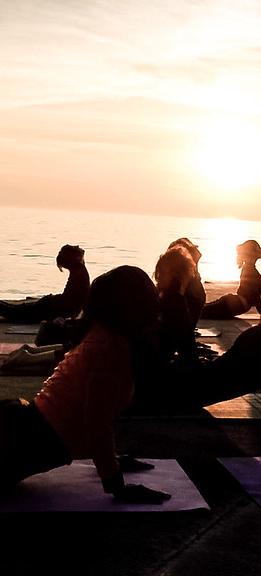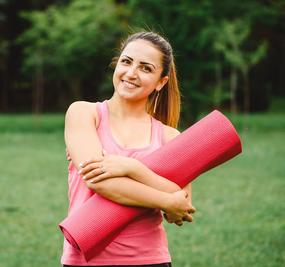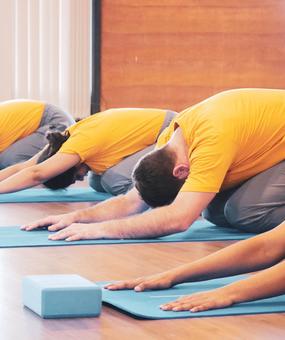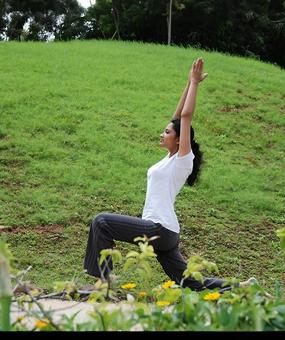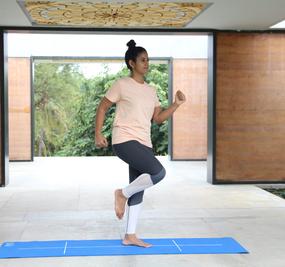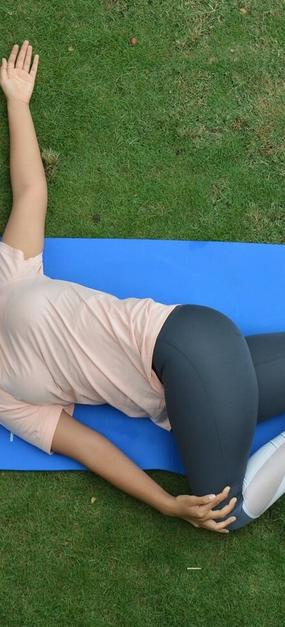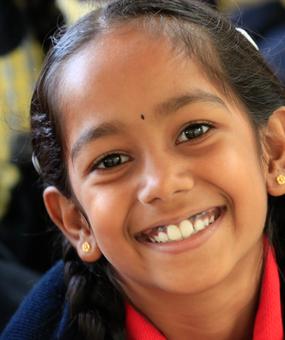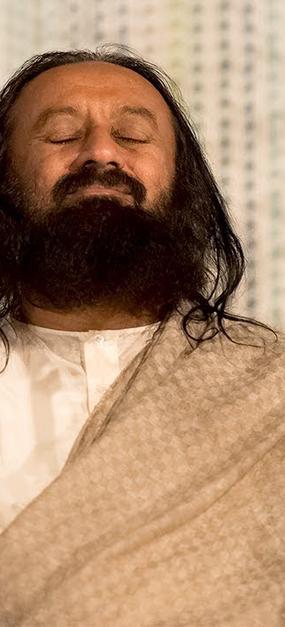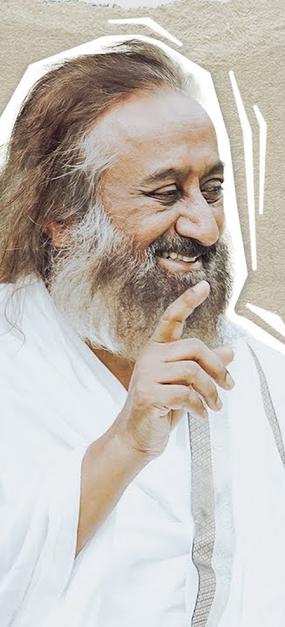In India, the ancient life science of Yoga and the art form of dance have been intertwined for centuries. The practice of Yoga brings about stability, poise and balance in body, mind, and spirit. Similarly, the elegant, highly-refined classical dance forms of India bring into play the mind, body, and spirit through the medium of artistic gestures, poses and facial expressions all set to scintillating lyrics and music.
“Yoga is like a dance, you are aware, the body, breath, and mind are united: it’s like a slow motion, moving from one pose to another”, says Gurudev Sri Sri Ravi Shankar, highlighting the deep connection and the amazing similarities between yoga and dance.
It is these proven transformative qualities of Yoga that can help dancers bring a new sparkle and added dimensions to their performances, their personalities, and their career. Let us explore how dancers can benefit from the practice of Yoga.
Yoga helps a dancer in 8 ways
- Yoga is a combination of physical and breathing techniques that help keep the body healthy and the mind calm.
- Yoga tones the muscles and keeps joints flexible – but do incorporate yoga practice into your routine early enough in your dance life.
- Yoga asanas practiced with awareness, teach a dancer to link breath and movement, which in turn helps harness the energy breath gives. The result? Higher energy levels and the stamina needed to perform for long hours, or for executing challenging or energetic dance sequences with more respiratory ease and grace. And less breathlessness!
- Helps dancers maintain their flexibility and focus and execute challenging sequences with more poise, resilience and balance.
- Boosts confidence and creativity- qualities essential for performances and when choreographing.
- Reduces risks of dance-related injuries and overuse injuries.
- Helps deal with pre-concert and/or on-stage nervousness. So does meditation (see below).
- Especially helpful if you are getting back to dance after a longish break.
Try Sri Sri Natya yoga and see the difference it makes
6 yoga asanas for dancers:
Let’s have a look at a few Yoga postures that can help gain agility in your dance moves. Begin your asana routine with a few gentle body-loosening exercises like neck rotation, shoulder rotation and ankle rotation. These will help as warm-up exercises and help you do the asanas with more ease.
Few Yoga postures for dancers that can help them gain agility in their dance moves.
- Trikonasana (Triangle pose)
- Utkatasana (Chair pose)
- Poorvottanasana (Upward Plank pose)
- Adho Mukha Svanasana (Downward facing Dog pose)
- Setu Bandhasana (Bridge pose)
- Shavasana (Corpse pose)
1. Trikonasana (Triangle pose)
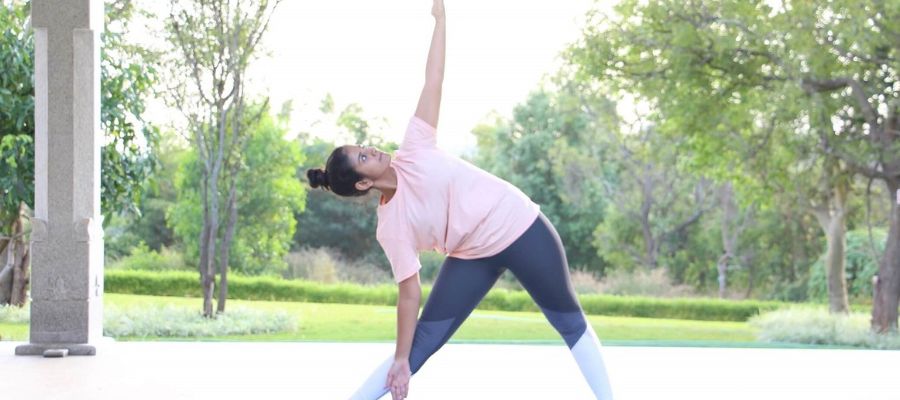
The Trikonasana (Triangle pose) aids dancers to strengthen their legs, knees, ankles, arms and chest. It also strengthens and opens the hips, groins, hamstrings, calves, shoulders, chest and spine. This yoga posture also increases the physical and mental equilibrium and relieves dancers of anxiety, stress and back pain.
2. Utkatasana (Chair pose)
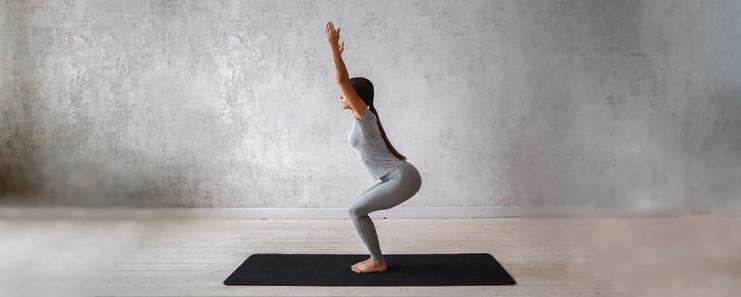
The Chair pose exercises the spine, hips and chest muscles. It aids a in strengthening the lower back and torso. It also tones the thighs, ankles, leg and knee muscles. This yoga posture assists dancers to balance the body and brings determination in the mind.
3. Poorvottanasana (Upward Plank pose)
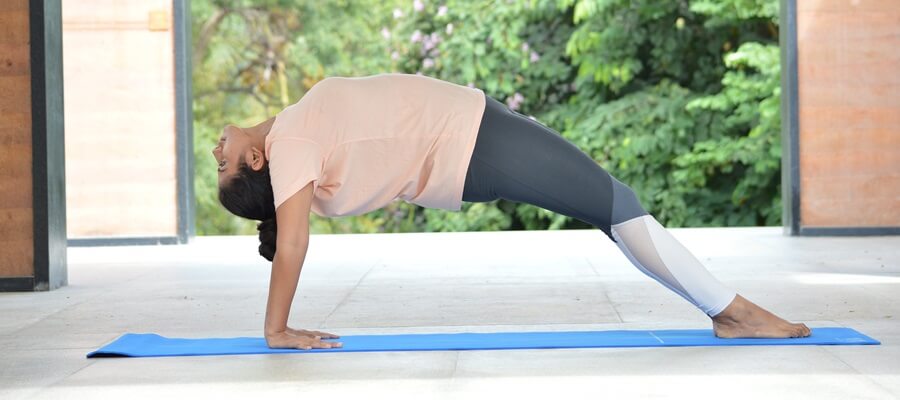
The Poorvottanasana (Upward Plank pose) strengthens the wrists, arms, shoulders, back and spine. It also stretches the legs and hips. Do not do this asana if you have any back related issues.
4. Adho Mukha Svanasana (Downward facing Dog pose)
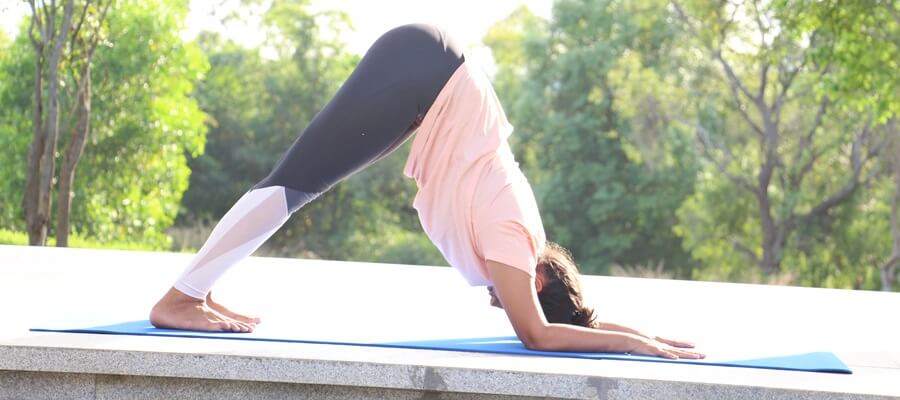
The Adho mukha Svanasana (Downward facing Dog pose) is a rejuvenating yoga posture that brings strength throughout the body, especially the arms, shoulders, legs and feet. It tones the muscles, increases circulation to the brain, lengthens the spine and strengthens chest muscles. This yoga posture helps dancers calm the mind and also relieves them of fatigue or head ache.
5. Setu Bandhasana (Bridge pose)
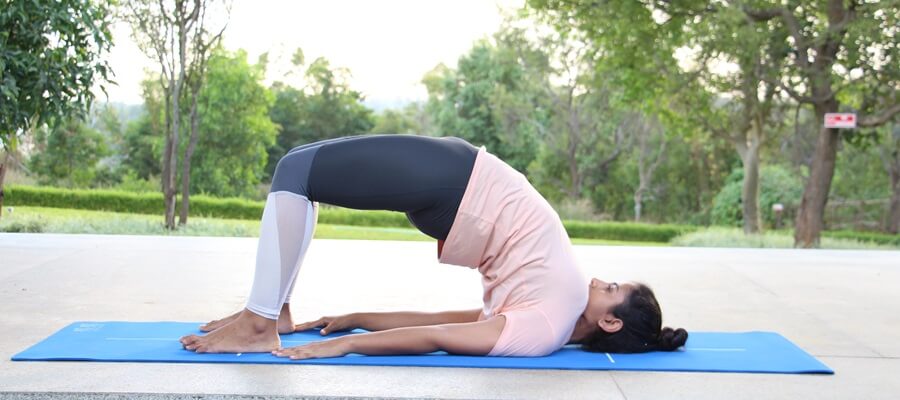
The Setu Bandhasana Bridge pose strengthens the back muscles and stretches the chest, neck and spine. It also relieves the body of back-ache and calms the brain.
6. Shavasana (Corpse pose)
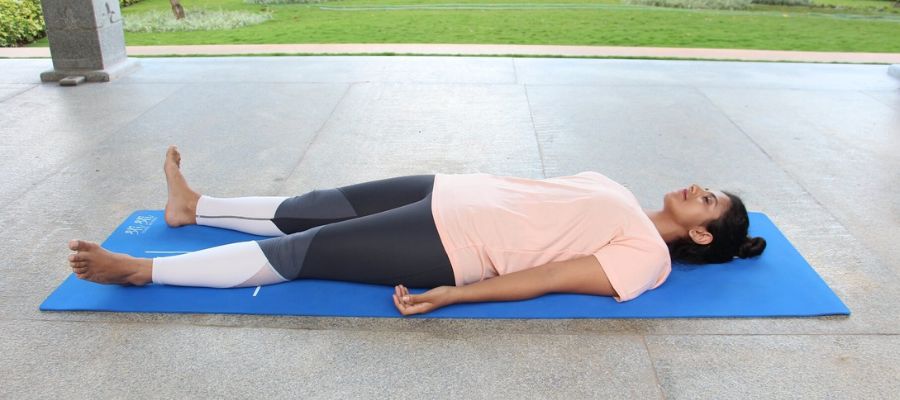
The toga routine should be ended by lying down in Shavasana (Corpse Pose) for a couple of minutes. It rejuvenates the body by bringing it into a deep state of meditative rest.
Things to do before a performance:
As a dancer, doing a few rotation exercises and a few stretches, and a couple of rounds of Surya Namaskar will help prepare your body for the performance and give more energy. If you are feeling particularly nervous, practice the Bhramari pranayama and shake off pre-concert nerves.
Meditation Can Help Dancers:
I meditate regularly and I find this enhances the creativity in me, both during performances, and when I am choreographing.
– Uttara Antharjanam, Odissi Dancer and Sri Sri Natya Teacher
Meditation can also add a new dimension to your performance:
- Helps a dancer connect with her inner self, and to a higher consciousness which in turn transforms the performance.
- Helps in conveying bhava (emotion) better.
- Brings out the creativity in choreography, like Yoga.
- It also helps gain focus and calmness before and during a performance.
- And, like Yoga, helps you to remain equanimous and deal with ups and downs in life with balance.
Yoga & meditation will keep alive your passion for dance
Practicing these asanas with consistency, and supplementing it with meditation, will boost your confidence help you retain mental tranquility, as well as keep you motivated, adaptable and smiling through your dance career.
When dancers learn to enjoy their own performances, they can take their art to a whole new level. When you integrate Yoga into your routine, you can experience – and enjoy – the difference. And so will your appreciative audiences!
Yoga practice helps develop the body and mind, bringing many health benefits, but it is not a substitute for medicine. Also, it is important to learn and practice Yoga postures only under the supervision of a trained Art of Living Yoga teacher. In the case of any medical condition, surgery or pregnancy, practice Yoga postures after consulting a doctor as well as a Sri Sri Yoga teacher.



